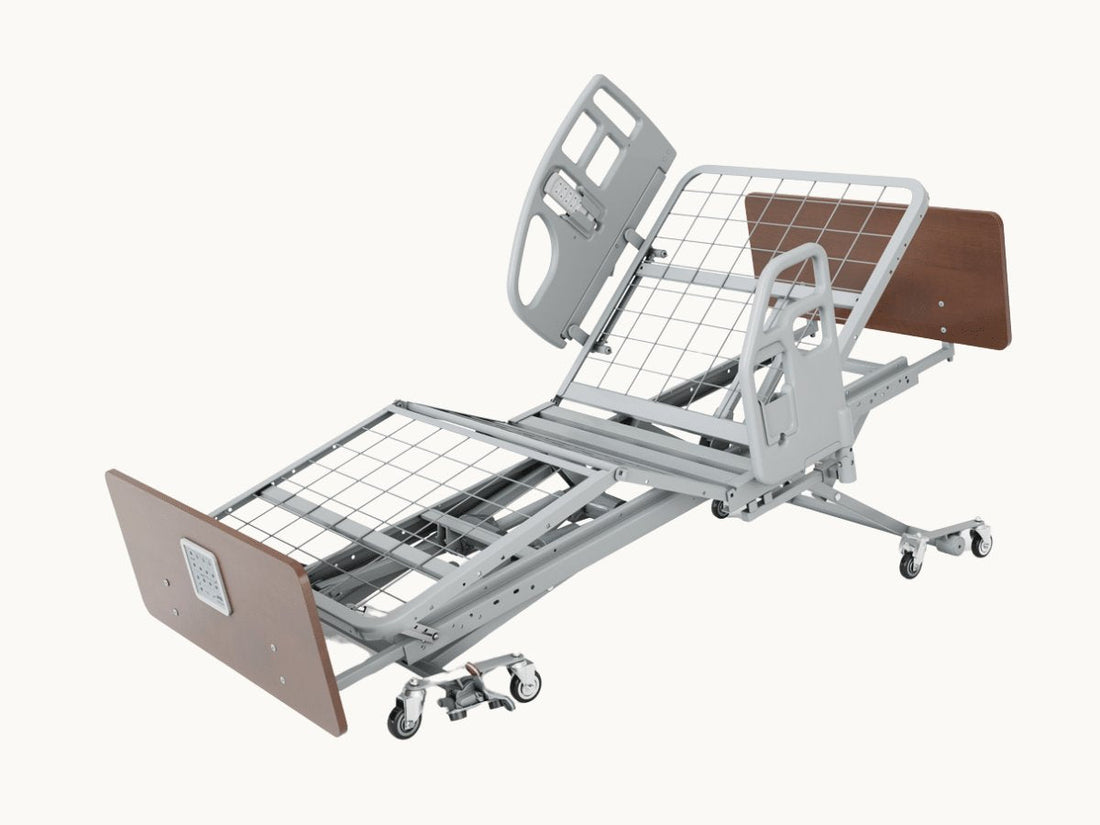
Why Lockout Features Matter for Dementia Care
Take a high-low hospital bed for example - it allows caregivers to raise or lower the bed for care tasks, but if left accessible to a person with dementia, it can also lead to dangerous falls from an elevated height.
That’s why we strongly recommend selecting a bed with motor lockout capability if your loved one is living with memory or cognitive issues.
Hospital Beds with Lockout Safety
Several of our most recommended bed models come with built-in lockout controls that allow you to disable certain functions unless a caregiver is present:
- Span America Advantage Bed
- Span America Advantage ReadyWide Bed
- SonderCare Aura Bed
These beds allow you to:
- Lock the bed in a safe low position
- Disable height or tilt adjustments from the hand pendant
- Control motor access via foot-end panel or key fob, depending on the model
This ensures that the person using the bed can’t accidentally raise it to a level that could increase fall risk.
Power Wheelchairs and Mobility Lockout
The same safety principles apply to power mobility devices. For example, the ComfyGo IQ9000 Power Wheelchair includes a mobility lockout feature.
- Caregivers can temporarily disable chair movement
- Helps prevent unintended travel or collisions
- Provides safety without completely removing independence
Striking the Balance Between Freedom and Safety
It’s a delicate balance - giving your loved one enough autonomy while still keeping them safe from harm. With the right medical equipment, you can control how much freedom is appropriate at any given moment.
Whether it’s a hospital bed or a wheelchair, lockout capabilities are a crucial feature when managing care for individuals with dementia or cognitive impairment.
Have questions about which models offer the safety features you need?
📞 Call us at 1-888-939-0002 - our team is here to help.
